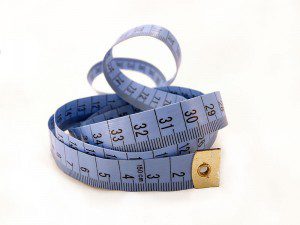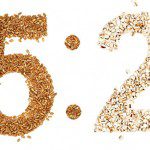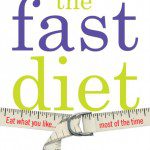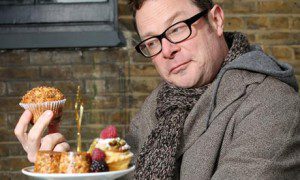Fast Diet
This week we thought we would look at a popular diet that many people are finding helpful. It is low cost as there are no special foods to buy or joining fees and it is also purported to have additional health benefits. This Radio 2 interview with Dr Michael Mosley explains the key points:
For a transcript of the full interview, scroll to the bottom of the page.
The Fast Diet
Although the “fast diet” may seem revolutionary and new, the science behind this fantastic diet has actually been around for decades, nay, centuries. Dr Michael Mosley quite openly admits that this was no secret discovery of his own, but more a revelation brought-on from researching centuries of the eating habits of the human race.
For many centuries humans partook in what we now call “feast or famine” – a phrase that describes a period in our culinary history where food was not always at hand whenever you “desired” it. The foraging needed and lack of modern preservative methods didn’t allow for anything as effortless as simply opening a fridge to find your dinner. Thus, with this struggle to find nourishment with ease, the body would suffer periods of fasting, between large meals – a method of eating which has now been revealed to be highly beneficial for both weight loss and health.
The Fast Diet – The Secret of Intermittent Fasting
The idea of “intermittent fasting” is, as mentioned above, influenced by our earliest counterparts and their intermittent fasting which was a basic part of their survival. To transpose this method of eating to the 21st century, Dr Michael Mosley has created the “Fast Diet” – a simple and easy to follow intermittent fasting plan that involves 2 intermittent days of low calorie intake vs 5 days of normal eating per week.
The Fast Diet Book and Dr Michael Mosley
Dr Michael Mosley is both an accredited journalist and scientist, and one of his most notable works includes his series for the BBC entitled “Inside the Human Body”, where Mosley covered in great depth the wonders and workings of the human body.
It was during his work for BBC’s Horizon that Mosley came to study the 5:2 diet – otherwise known as intermittent fasting diet, and so amazed and convinced by the outcome of his research was he, that he decided to release a book that would truly explain the science behind this tried-and-tested diet, and give proof of the results he himself had achieved.
Intermittent Fasting
Unlike other calorie restrictive diets that suggest what some scientists believe to be dangerous periods of total fasting, the 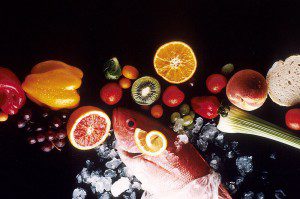 Fast Diet doesn’t entail entire days of food restriction – rather simply a cutting-down of calories. Lowering your calorie intake to 500 calories for 2 intermittent days a week ensures not only that you eat on fasting days, but also motivates you to eat incredibly healthy food such as fresh vegetables and fish.
Fast Diet doesn’t entail entire days of food restriction – rather simply a cutting-down of calories. Lowering your calorie intake to 500 calories for 2 intermittent days a week ensures not only that you eat on fasting days, but also motivates you to eat incredibly healthy food such as fresh vegetables and fish.
Many diet plans have failed in the past due to the unrealistic restriction of food types on the user, making the diet ultimately unmanageable and unrealistic to fulfil in everyday life, or around times like Christmas or weekends for example.
However with the Fast Diet you have the benefit of healthy, nutritious food for only 2 days out of 7, with the other 5 allowing you to eat whatever foods you normally love and enjoy, whilst leading to astounding weight loss through very little effort or change to your eating routine.
Intermittent Fasting Benefits
The benefits of intermittent fasting lie far beyond simple weight loss – most importantly research that has proven that not only does a intermittent fasting lifestyle help control insulin levels that burn fat and keep your energy balanced, but in turn can help protect you against diseases such as Alzheimer’s disease and Parkinson’s Disease.
As most diets usually only concentrate on weight-loss benefits, what makes the effects of the Fast Diet special, is the proactive benefits on your long-term mental and physical health also.
Intermittent Fasting Before and After
The results from following the Fast Diet are astounding – many report a 2 lb a week loss from following the diet – with very little disruption to your normal eating habits, the diet fits seamlessly into your everyday plans. Many struggle to find time for the gym, and we all know how difficult it can be to stick to a diet that restricts certain food groups, which is why the Fast Diet has become such a roaring success, with celebrity chefs such as Hugh Fearnley-Whittingstall being at the forefront of celebrity advocates. Other celebrity fans of the diet have included Dom Joly who has lost 2 and a half stone on the diet and has maintained it for many months. His article about it can be found here.
Not only will you see the benefit of following this fasting plan in terms of weight loss, but results show that the healthy food choices on fasting days and the new method in which your body learns to interpret the food you feed it, also boost energy levels on both a mental and physical level, leaving you feeling healthier from head-to-toe!
Intermittent Fasting Plan
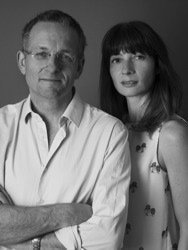 Although the ideology of the fast diet is relatively simple in itself, the only hurdle you may come across is finding and creating a number of interesting low-calorie meals to prepare for your fasting days. The Fast Diet book created by Dr Michael Mosley and Mimi Spencer is filled to the brim with delicious and exciting ways of creating meals and snacks for your fasting days, along with plenty of daily meal plans that will ensure you keep under your 500 calorie limit, and make this already simple lifestyle change even easier.
Although the ideology of the fast diet is relatively simple in itself, the only hurdle you may come across is finding and creating a number of interesting low-calorie meals to prepare for your fasting days. The Fast Diet book created by Dr Michael Mosley and Mimi Spencer is filled to the brim with delicious and exciting ways of creating meals and snacks for your fasting days, along with plenty of daily meal plans that will ensure you keep under your 500 calorie limit, and make this already simple lifestyle change even easier.
Fast Diet Recipes and Practical Tips
I have been on the diet myself since October and have lost 9 kgs so far (over a stone). I haven’t used any particular recipes as the diet is more about avoiding food than creating new meals! I do have some tips I can pass on though:
Drinks
I drink black coffee, herbal teas or water throughout the day. Strictly no alcohol. I fast on Mondays and Wednesdays and I decided to cut alcohol out on Tuesdays as well.
Breakfast:
Egg and 2 lean slices of bacon or ham: approx 200 cals
This is the breakfast that Dr Mosley has himself. It is high protein and helps you to stop feeling hungry.
60 grams of porridge oats, water and salt or a teaspoon of sugar: 200 cals
This does fill you up and tastes surprising good without milk!
1 boiled egg on a piece of toast, thin scrape of butter: approx 200 cals
Another high protein option.
Couple of apples: 80 calories or skip breakfast altogether!
Lunch and Dinner
I make up a huge soup and either split it between lunch and dinner or skip lunch and have it for dinner only.
I add a selection of courgettes, cauliflower, leeks, onions, butternut squash, mushrooms, red peppers, brussel sprouts, cabbage and basically any other low calorie vegetables I have available. I boil it up with chilli powder, curry powder, marmite or bovril and worcester sauce. Any packet noodle sachets that I have can go in. Anything that adds flavour but few calories.
I also sometimes add shirataki noodles. These are very low calorie noodles that I buy from a chinese supermarket. They are made of a type of yam fibre they have virtually no calories. They are not quite like real noodles but do fill you up!
I try to eat my soup quite late and go to bed early. I just say to myself “It is just one day, I can eat whatever I like tomorrow”. For me the most important thing about the diet is that I think I can stick to it long term. For the rest of the week you have full flexibility and can enjoy whatever food you like. It has also been a slow 1-2 pound a week weight loss so I think That is a healthy and sustainable way to lose weight. It is also cheap and doesn’t require my attending a regular session anywhere, which I would find difficult with my caring responsibilities. So far I have even tried one day where I ate nothing at all and actually it wasn’t too bad. Obviously the usual caveats apply, check with your doctor if you have health conditions tha ou are concerned about before doing this diet.
Review From Amazon:
I experimented with the diet after the programme was shown, then had a very dissolute December, knowing full well that I was going to go at it full tilt in the New Year. I started on the 2nd, 19 days later, I’ve dropped 10 lbs with no problems, no loss of energy (I play squash vigorously, and 5-a-side when I can get a game), and no trouble sticking with the plan. So, yes it works. Absolutely.
However, the most important point to emphasise is that this not a weight loss diet. Weight loss is entirely a side effect of the real purpose of the diet, which is to prolong life. It’s a milder version of Alternate Day Fasting. This is scientifically unproven as yet, but is said to reduce the chance of developing various cancers, and to help manage a variety of conditions / illnesses wide enough to include diabetes & arthritis. What tends to get the headlines is the fact that on your Fast days, you cut your calories to a quarter of the recommended. What is more significant is reducing your protein intake. This is said to force your body from “growth mode” into “repair mode” where, instead of creating new cells, the body attempts to repair damaged ones. Since cancers are essentially uncontrolled cell growth, it’s obvious how this diet could help; equally, repairing damaged cells will presumably help with any number of ailments, aches & pains.
Personally, I’m no fan of calorie counting. The vast majority of people have no idea what a calorie really is or how it’s measured. Therefore, my advice is don’t fuss too much about the limits. For a man, you’re supposed to keep the protein under 35g & the calories to no more than 600. If you stick to the protein limit & bust the calorie limit by a couple of hundred, it’s not going to hurt you. It’s the protein limit, I think, that is more significant in switching to repair mode. I’ve been varying between a 4:3 & 5:2 version of the diet, and I’ve probably hit 8-900 calories on half the Fast days & still shed pounds plenty quick.
Key psychological point: you don’t actually feel like you’re on a diet. There is no constant struggle to discipline yourself day after day after day. Five days a week, you eat normally; two days you fast. You can do two days consecutively (I was doing Sun & Mon last year), you can split them, it really doesn’t matter. But it isn’t difficult, on a single day, to adjust your diet, knowing full well you can eat what the heck you like the next!
As far as food goes, it’s quite simple. On Fast days, cut your protein down, cut out the standard starchy staples (spuds, pasta, rice, bread). Eat plenty of non-root vegetables, along with some chicken or fish & you’re pretty much there. Even if you’re not much of a cook, or short on time, it doesn’t take much to grab some mixed frozen veg from the freezer (beans, sprouts, casserole veg, broccoli, cauliflower, that sort of thing) & flash it in the microwave. Fresh or frozen, you can always pep things up with herbs, a sprinkling of seeds (fennel, caraway, etc), or a few splashes of soy / oyster / Worcester / Tabasco sauce. Plenty of variety there, so it doesn’t get boring either.
Final trick: drink plenty; sip, sip, sip throughout the day. Now, you are allowed black coffee / tea on the diet, but I don’t drink either, so I just drink water. The important thing is sip, sip, sip, though. On a fast day, I’m typically drinking 3-4 litres, which gives the system a good flush, as well! But it’s not a huge glug followed by nothing for hours. Sipping throught the day keeps the hunger pangs at bay and makes it easy to stick to. And it’s only for one day, remember!
I you are interested in buying the book please do so from our link below:
Transcript from the Radio 2 Interview with Dr Michael Mosley 23/01/2012
00:00 Steve Wright: Dr Michael Mosley is a journalist, science presenter and producer. He is well known for his programs on biology and medicine particularly his series on the workings of the human body, inside the human body. Last August, Michael was credited with popularising the “5:2 Diet” after appearing in the BBC Two Horizon documentary “Eat Fast Live Longer,” which had a phenomenal global response. Now Michael along with journalist and author, Mimi Spencer, has just published the “Fast Diet” which outlines how intermittent fasting helps you lose weight and live longer. So listen to this, the key to the book… In fact, let’s welcome him, and…
[applause]
00:39 SW: I was going to say, quartering your calorie intake for two non-consecutive days each week. So just run that by me again and tell me how that actually works.
00:48 Michael Mosley: Okay.
00:49 SW: So imagine it’s Wednesday, as it is, on this diet, what would I be doing now on a Wednesday?
00:54 MM: Okay, so what I actually do is every Monday and every Thursday I eat 500 calories or 600 calories around there. So I have breakfast which consists of a couple of scrambled eggs and a piece of ham, that’s about 300 calories. I drink loads of black tea, water, black coffee until the evening about 7 O’clock when I have a pile of vegetables, enormous pile of vegetables, with a slice of salmon or something like that.
01:20 SW: So you’d be skipping lunch?
01:22 MM: That’s a fasting day. Right, skip lunch.
01:24 SW: Right. So what do you do for lunch when you are feeling a bit pangy?
01:27 MM: These days I don’t because I’ve got used to it. The thing about this diet… I mean it’s been studied now for 20 years by some of the world’s leading scientists. Indeed one of the guys behind it is the most cited scientist in his area, which is neuroscience, in the world. So it’s not new. What’s new is that I came along and promoted it and did it, [laughter] and also what is new is the fact there are human trials underway at the moment of it. So it’s not a gimmick, it’s based on a huge amount of science.
01:53 SW: So just clarify what you do then? You semi-fast, for two days out of seven and the other five days you can eat absolutely normally?
02:00 MM: Yeah.
02:00 SW: It’s just simple as that.
02:01 MM: And that’s why foodies love it. People like Hugh Fearnley-Whittingstall has just written about it saying he loves it, because they can eat and drink exactly what they want, five days a week and two days a week they eat what I’ve just described, which is a light breakfast and a light supper.
02:15 SW: Okay, you’re the scientist, you’re the doctor, why does that work?
02:18 MM: The reason it works is partly because you consume less calories, because you are actually consuming a quarter of the amount of calories on two days a week. And on that basis just from normal physics, you will lose about a pound of fat a week. You will appear to lose more than that because all diets, what happens is you lose mainly water at the beginning, so you appear to be losing loads and loads of weight than you stabilize, and that’s because it’s mainly water. On this diet, you lose about a pound of fat a week and then you just constantly go on doing it. At a cellular level what happens is your system is being stressed because we evolved at the time when feast and famine was the norm. So a 100,000 years ago, we did not eat four meals a day. We basically went off, we killed something, we ate it, we gorged ourselves, and then we ate nothing for quite a while. And our bodies like stress. The reason that exercise works is because it tears muscle. It stresses muscle and then when you recover, you recover stronger.
03:12 SW: On the fasting days, what about sustaining energy levels?
03:15 MM: One of the surprising things is after about two or three weeks, what happens is you will find that you actually have more energy, because they know that what happens is your brain starts producing this stuff called neurotrophic factor which makes you feel good. They’ve detected it in every animal model they’ve tested and they’re just starting next week, they’re gonna start human trials of it. So what this stuff does which is called BDNF and they’ve have measured it in all sorts of animals, is it makes you feel good, it’s the stuff that gets produced when you take antidepressants except it’s a natural thing. So it will make you feel better, sharper. It will protect you against dementia if they’re right. And the other thing is, most people have this idea that, “Ooh, if I don’t eat then my blood sugars will sink”.
03:55 SW: Yes.
03:56 MM: That is complete and utter fallacy. You would have to go without eating for three days and probably run at least three miles for your blood sugars to sink. It just doesn’t happen, your body is fantastically good. All that happens is that you are used to a high sugar diet and so for the first three weeks you will find it quite tough.
04:13 SW: The other question I wanted to ask you, it’s about the actual recipes. So these are recipes for the days that we’re fasting? Or…
04:19 MM: That’s right.
04:20 SW: Okay, so let’s say…
04:22 MM: Because the idea is you don’t want to… On a diet, you don’t want to change too many things. You want to keep it really simple.
04:26 SW: Yes.
04:26 MM: So broadly speaking I am saying on your five days, do whatever you normally do, don’t bother about it. All you do on your two days is you reduce the amount you eat. Now these recipes suggest ways you can do it. Lots of people save a lot of money on this, because obviously you’re spending a lot less.
04:41 SW: Okay, by the way Michael’s book “The Fast Diet” is out now and when we come back we’ll talk briefly about the diet book again and then also this exciting new series… What’re you laughing at now?
[laughter]

